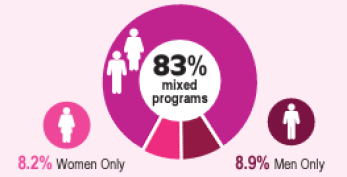

Applying interventions designed to reduce and manage the symptoms of substance use disorders.
Social Determinants & Substance Use: A Perspective Beyond the Policy 'Silo' Pragmatics - This paper (synoptic version, peer reviewed and published in Journal of Global Drug Policy & Practice) is a review of and research into the social...
Introduction: Given the scarce literature on alcohol use disorders (AUD) and their treatment in developing countries, this paper aims to explore motivation levels and their correlates among alcohol service users in two residential treatment...
This resource has been initiated by Anthony Corballis in conjunction with Dulwich Centre Publications. You’ll find here a range of writings about addiction and ways of responding to alcohol and other drug use.
This qualitative study was commissioned by Alcohol Change UK in Wales to explore how and why alcohol and self-harm are related, and how alcohol, self-harm, and related services, are experienced and understood. Eleven...
According to the World Health Organisation, around half a million deaths each year are attributable to drug use. More than 70% of these deaths are related to opioids, with more than 30% of those deaths caused by overdose. Signs, symptoms...
The risk of an individual overdosing is influenced by a range of, often overlapping circumstances. Factors such as incarceration, mental and physical health conditions, and the treatments prescribed for these conditions can all affect the...
Biotechnological treatment, including addiction treatment, is the way of the future. Researchers and pharmaceutical companies praise depot injections, agonist/antagonist implants, deep brain stimulation, and hapten conjugate vaccines as...
Tobacco smoking is the greatest cause of sickness and early death worldwide, with 8 million people dying each year from a smoking-related condition. The use of pharmaceutical or behavioural assistance improves smokers' chances of quitting...
Ecolink Institute successfully completes its 3rd Batch on UTC training
Mangalore: Ecolink Institute of Well-being, an India based training Institute who pioneered online live training of the Universal Treatment Curriculum successfully...
Overdose is the leading cause of avoidable death among people who inject drugs.
The ‘Stop Overdose Safely’ is a joint initiative from UNODC and the World Health Organization (WHO) to address opioid overdose and provide life-saving...
Over the past two years, in an attempt to reduce the spread of coronavirus, countries around the world have imposed a range of restrictions and social distancing measures. For social scientists and practitioners, this has led to discussion...
In response to the concerning numbers of opioid-related deaths in the US, there has been a recent focus on opioid prescribing trends, which has shown an increase in opioid tapering among patients prescribed long-term opioid therapy. However...
In June 2021, the University of British Colombia Addictions and Concurrent Disorders Research Group hosted an online conference entitled Let’s Talk Overdose: The Hidden Pandemic and How to Stop It.
Here, you can find the conference...
The Canadian Centre on Substance Use and Addiction partnered with Health Canada to produce Substance Use and the Workplace: Supporting Employers and Employees in the Trades.
This collection of resources contains links from more than 30...
Impaired cognitive functions, particularly executive function, predict poor treatment success in people with substance use disorders. The current study investigated the effect of receiving adjunct cognitive...
In response to a high burden of opioid use disorder (OUD), Iran established a network of opioid agonist treatment (OAT) centers beginning in 2002. To increase treatment diversity, particularly for patients who...
Opioid overdose deaths can be prevented through timely administration of naloxone, a potent opioid antagonist drug that rapidly reverses the effects of opioid analgesics by binding to the opioid receptors in the central nervous system.
B...
Alcohol Awareness Week is a week of awareness-raising, campaigning for change, and more. This year's Alcohol Awareness Week takes place from 15-21 November 2021 on the theme of Alcohol and relationships.
Alcohol Awareness Week is...
Share the Knowledge: ISSUP members can post in the Knowledge Share – Sign in or become a member